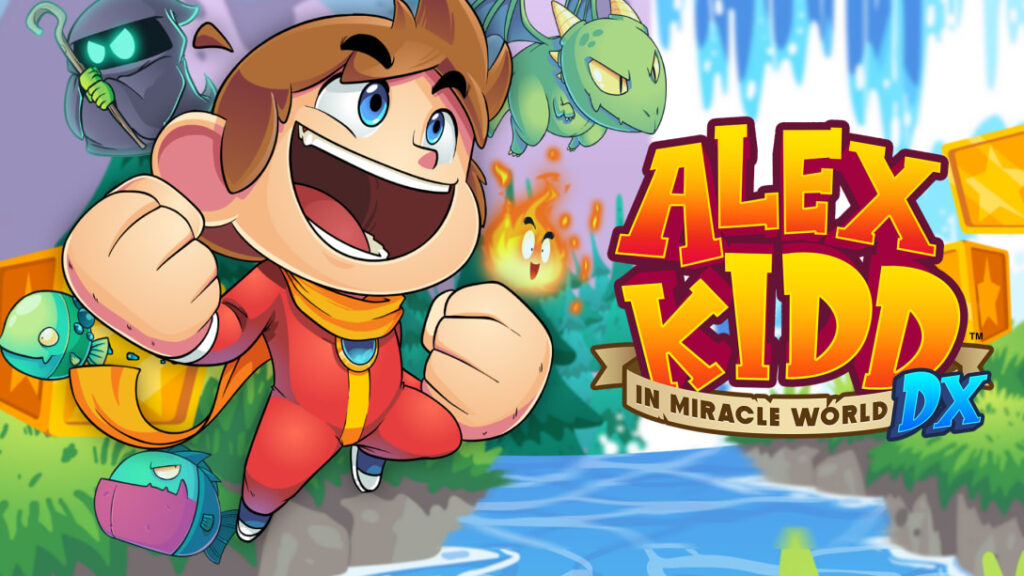
For those of us old enough to remember the Sega Master System (SMS), it was a mixed blessing. In many ways it was revolutionary, with a built-in game (varied depending on the model), control pads with sticks that could screw in to create joysticks, and even 3D glasses of a sort. Granted they induced headaches and likely a few seizures, but the overall concept was neat. Plus it had Phantasy Star, Outrun, Wonder Boy, Shinobi, and a host of other classic titles. But what almost every Sega Master system owner inevitably also ended up with was at least one title in the Alex Kidd franchise.
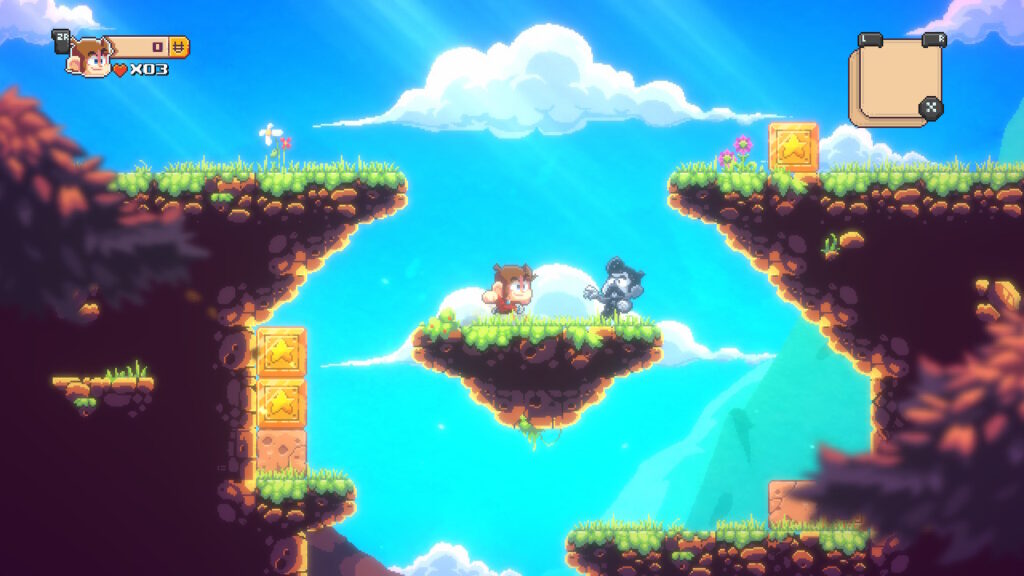
The first and most famous of these was Alex Kidd in Miracle World, a platforming game featuring a comically deformed kid with huge ears and fists named Alex. Your goal? To save your brother…and the kingdom of course. Now, when you have nothing else to play, Alex Kidd can definitely burn a few hours. Old SMS owners have plenty of nostalgic summer memories of hurling their controllers after failing yet again to make it any further in Alex Kidd in Miracle World. Sega capitalized on this with three sequels on the Master system before coming up with an odd blue hedgehog creature that they figured might catch on. After Sonic, Alex Kidd in Shinobi World was released as a fourth sequel and is not only rare but pretty neat conceptually. Sega even released Alex Kidd in the Enchanted Castle on the Genesis, a direct sequel to Miracle World, but most of these games were met with limited praise and the Alex Kidd franchise ended in 1990.
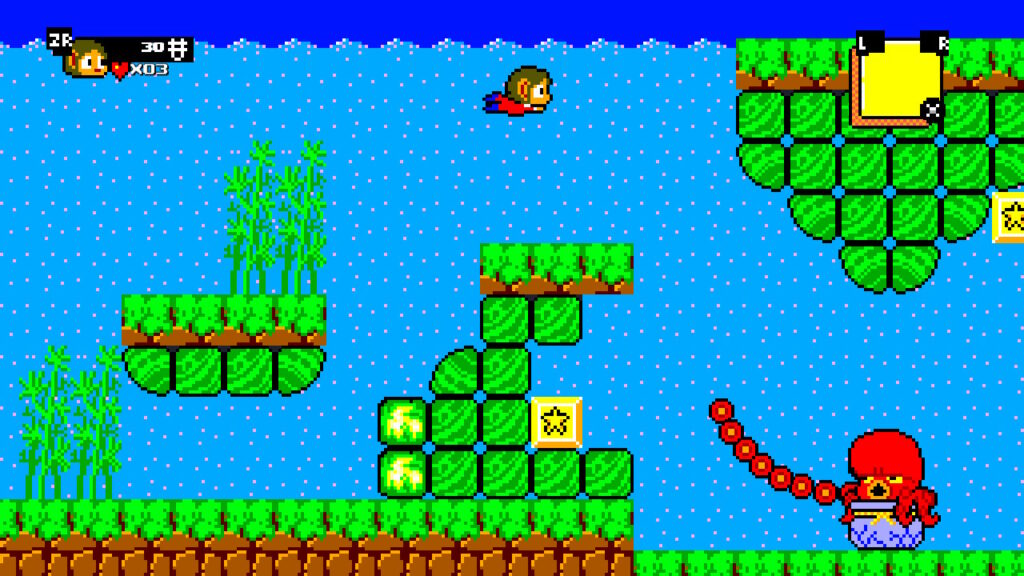
Fast forward 31 years and today, Sega has worked with developer Jankenteam and publisher Merge Games to bring back Alex Kidd in the form of Alex Kidd in Miracle World DX! This is a complete remaster of the original game, almost down to the fine detail! If you’ve played the original, you know exactly what you’re in for but for the uninitiated, there’s plenty of detail here! This remaster was built from the ground up in Unity by Jankenteam, a small Spanish studio. Note that in Europe, the Sega Master System was wildly more successful than in the US and there are a ton more devotees there to this day! Many games only came to Europe and didn’t even get US localizations.
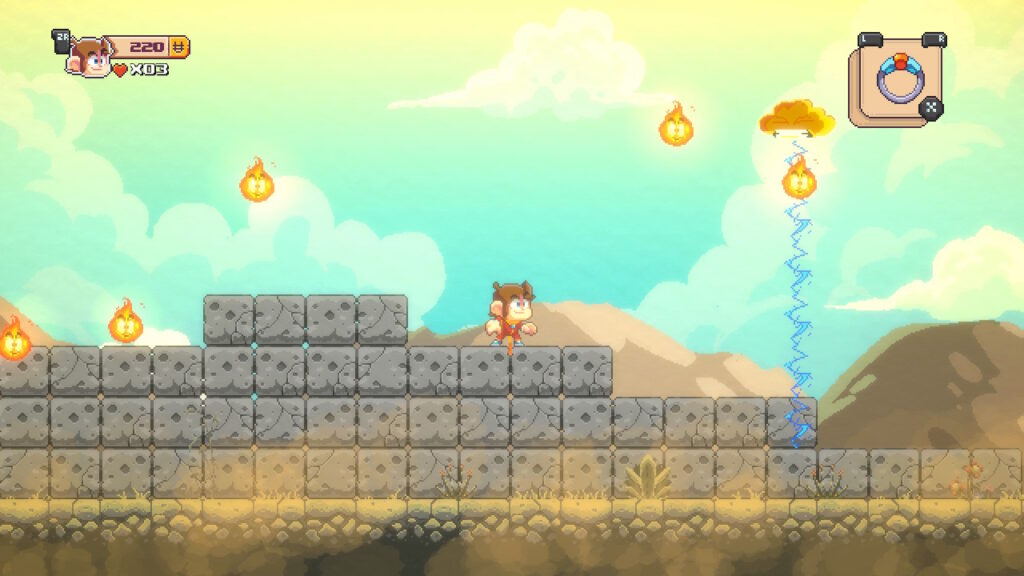
Alex Kidd in Miracle World DX is modernized in virtually every way. Graphics are completely overhauled, controls are cleaned up and tightened, loading is nearly eliminated, dialogue is added to enhance the plot, and Easter eggs are everywhere for fans. This release is truly and noticeably a labor of love! There are even two extra modes available when you finally complete Alex Kidd, Classic mode which is a complete faithful rebuild of the original SMS game and Boss Rush mode where you can fight each boss one by one back to back while an odd anthropomorphic audience looks on at you.
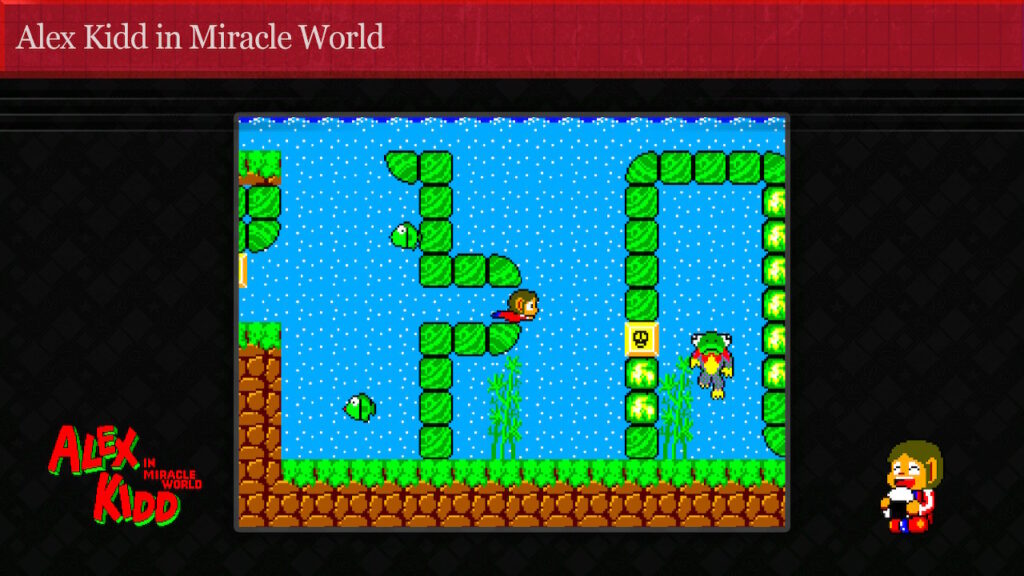
But what are you really getting with Alex Kidd? At its heart, this is a side-scrolling platformer. As Alex, you can jump and punch a short distance. That’s it. No special moves, no fancy double jumps. Remember, the original game is from 1986 and the mechanics, for better or worse, have been faithfully preserved! Punch an enemy and they die. Touch one, even the slightest brush, and you’re instantly dead. Since your reach is only a few pixels, this becomes fairly challenging quickly, and new players to the franchise will definitely be surprised by the immediate difficulty. As you progress, punching certain blocks will give you powerups that let you shoot fireballs from your fists and saving up coins will allow you to buy motorcycles, flying carpets, and other interesting single use items to help progress through the rather challenging levels.
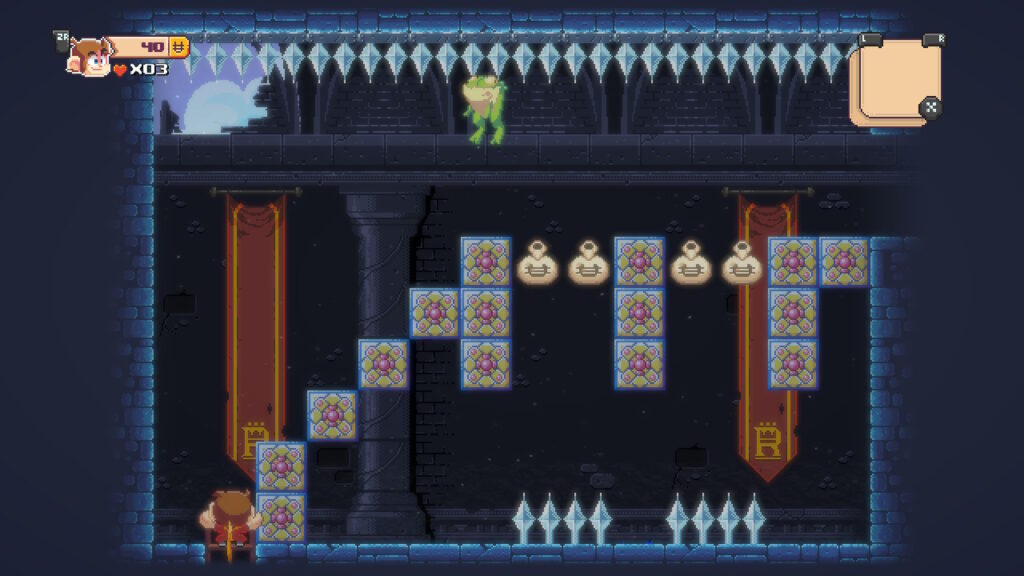
Levels themselves are quite short in Alex Kidd. Just like the original game, make it to the onigiri (delicious Japanese rice balls) at the end of each level and the level ends. You can even change the type of food if onigiri isn’t for you. Why is unclear, but the option is there if you want a digital burger instead. There’s no real reason to defeat enemies other than to get them out of your way and you aren’t playing for score, so bypassing enemies is a valid strategy. Completists are going to absolutely tweak out trying to finish Alex Kidd as the game really isn’t designed to collect every single thing in each level and there’s no reward for doing so. Honestly though, that’s how games should be, so it would be fun to watch some completist streamers play this one.
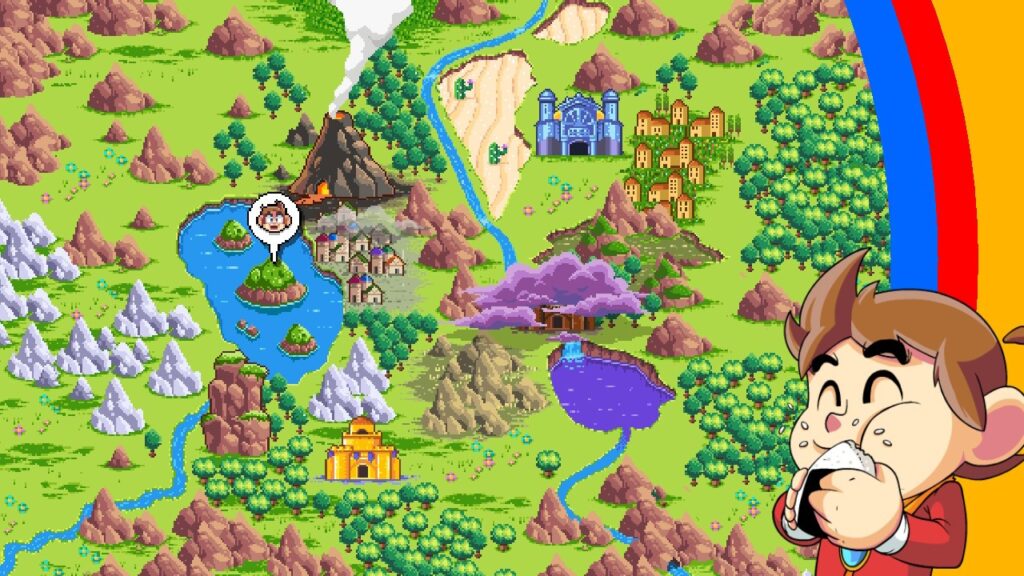
As stated, levels are quite short and end abruptly, kicking you back to a short map sequence and then directly to the next one. Every so often, you’ll run into a boss though. Some of them are normal, like a bull that charges you. Every boss is the same, hit them until they die. It’s the matter of getting close to a rampaging bull or bouncing giant hand that makes things challenging. Bosses that work for the game’s villain Janken are three hands attached to human bodies in place of heads, one in a fist, one palm open, and one making a pair of finger scissors. You see where this is going, right? Yup, it’s time to play jankenpon!
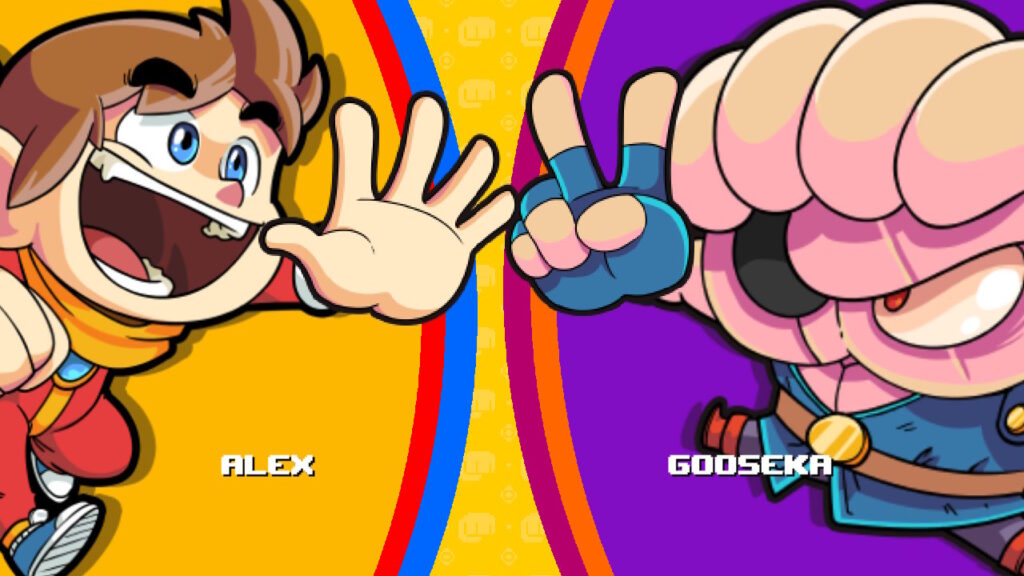
This is one of the weirdest things about Alex Kidd and has been irritatingly and faithfully preserved in the remaster. Two wins beats a boss at jankenpon (rock, paper, scissors). Unfortunately, you have to wait for the music to stop each round, drawing out the “fun” of the game. Beat a boss and you get to move on, but they’ll be back and you’ll have to fight them after beating them at jankenpon the next time! These boss fights are absolutely gruelling too, with a single mistake or hesitation forcing you to replay a whole level, as you only has three lives and Alex suffers from the touch of death if the wind blows the wrong way. They’re doable though, for the most part. Interestingly enough, switching visual modes to classic mode actually makes most boss fights easier. There’s more room to maneuver and a bit more overall leeway in classic mode. This is a good strategy for pretty much any hard portion of the game, if you can stomach the noticeably more repetitive music and sound effects.
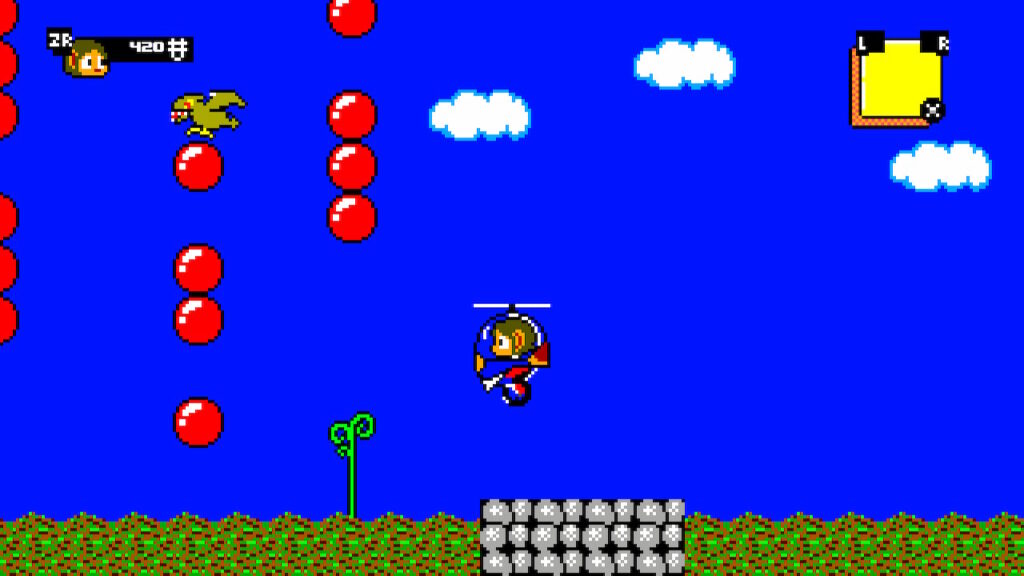
Speaking of visuals, Alex Kidd absolutely nails them. The cartoonish graphics of the main mode are simply a delight and the ouches and bams of the enemy deaths are just fun. The whole game is a visual smorgasbord, one of the best things about Alex Kidd. Backdrops range from cliffside lakes to bubbling swamps, underwater vistas fully of predatory fish, burning castles, and arid plains full of bugs and weird things. They range from cliffside lakes to castles to swamps and even flaming buildings. The range of creative graphics in Alex Kidd is vast and glorious. Hit the R2 button on the Switch and you instantly skip to classic mode too, allowing you to see a modernized rendition of the original 8 bit gameplay. The transition is almost seamless too, only taking a second. Suddenly it’s 1986 again and you feel like a kid playing their first video game. Click, and you’re back to modern day again. This is a fantastic feature and the smooth and crisp response time is outstanding. An absolutely amazing programming job and the devs over at Jankenteam deserve all the praise for the wonderful visuals of Alex Kidd in Miracle World DX.
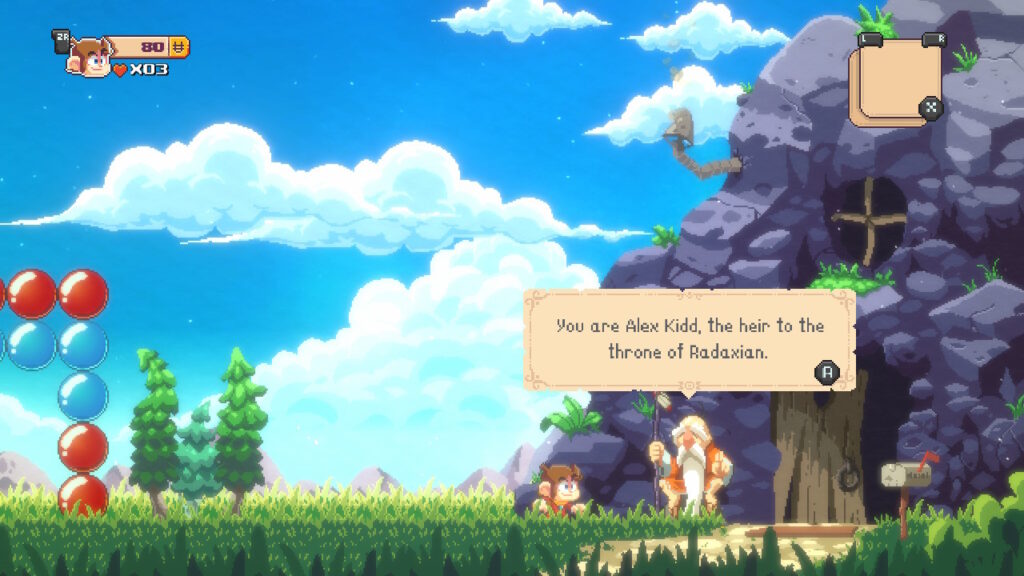
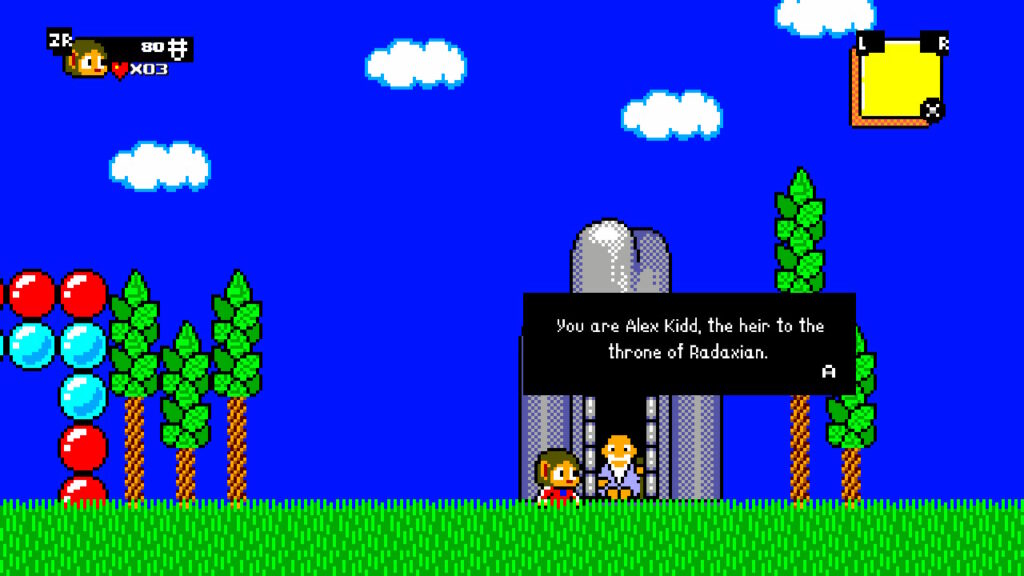
The soundtrack here is nothing to scoff at either. A fully remade soundtrack that feels like it should have accompanied the original game is included here with a wide range of guitars, digital effects and other surprises. It fits splendidly with the overall feel of the game and ranks with classic Sega soundtracks easily. From an audio standpoint, Alex Kidd only outmatched by the accompanying graphics and it’s almost a shame there isn’t a track mode to simply listen to the soundtrack.
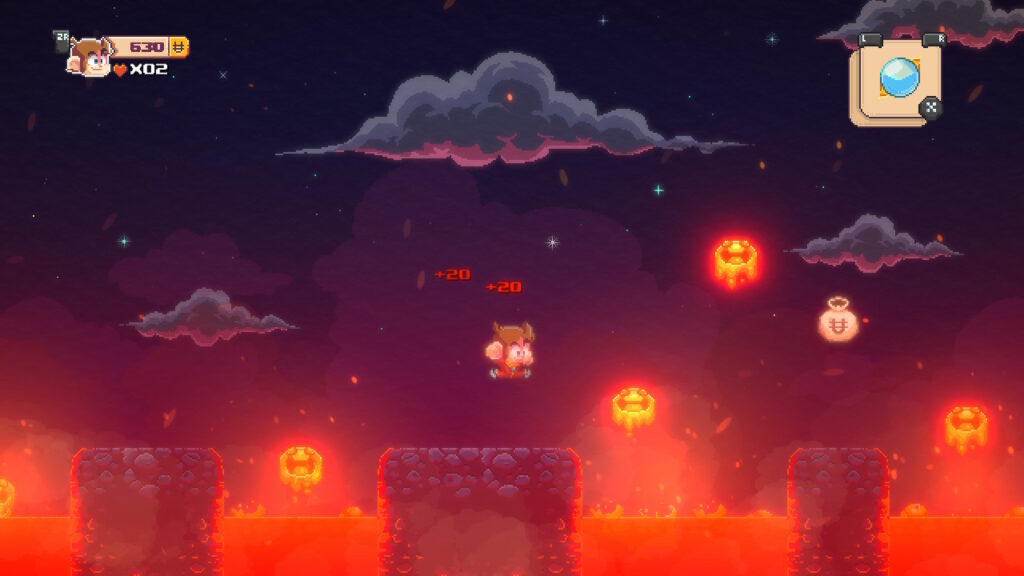
Controls in Alex Kidd have been cleaned up from the original Master System. There’s an aspect of momentum to movement in the Alex Kidd series that is challenging at the best of times and downright unfair at the worse. This has been somewhat mitigated by modernization on the Switch, but the slightly floaty physics of the game have been for a large part, somewhat preserved. This means that some of the detailed jumping and button tapping required to survive in Alex Kidd is damned hard. You will die a lot. You will continue a lot. You will curse your stupid fingers for being stupid. Alex Kidd simply doesn’t control like modern games. It feels like an SMS game, which is in and of itself an impressive programming feat, but whether players will actually value that feeling is definitely in question. Modern gamers aren’t used to games like this, and when they are, they’re used to games like Mega Man which have ultra-fine control down to the pixel. That is simply not the case here and while controls are consistent, they’re certainly not easy to master, even on a Switch Pro Controller or a Split Pad Pro.
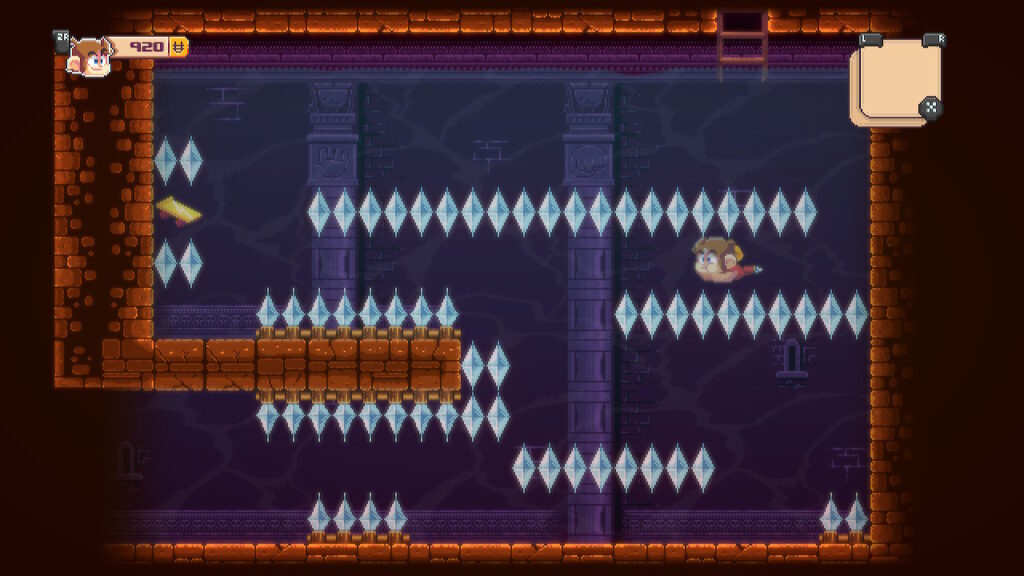
The simple fact is that this is not an easy game by any means. Levels are oddly short, the rock, paper, scissors game hasn’t aged well and is weirdly irritating and overly time-consuming even though it’s iconic for the game, and bosses are downright frustrating. Jankenteam knows how hard Alex Kidd is though, and have thoughtfully included an Infinite Lives mode. Once turned on however, it cannot be disabled until you start a new game, so if you’re trying to beat the game with your ‘mad skilz’, this is most definitely cheating. By the time most players get to the last five levels or so, chances are high that infinite lives will be activated. The final couple of dungeons have so many death points that you’ll be half-tempted to throw your Switch like an old Master System controller. Don’t do it. Think of the Switches. Just take a breath. Accept that you suck. Wait…no. Accept that Alex Kidd in Miracle Land DX is absolutely and utterly blisteringly difficult toward the end and that that fact hasn’t changed since 1986. Ok, let’s wrap things up.
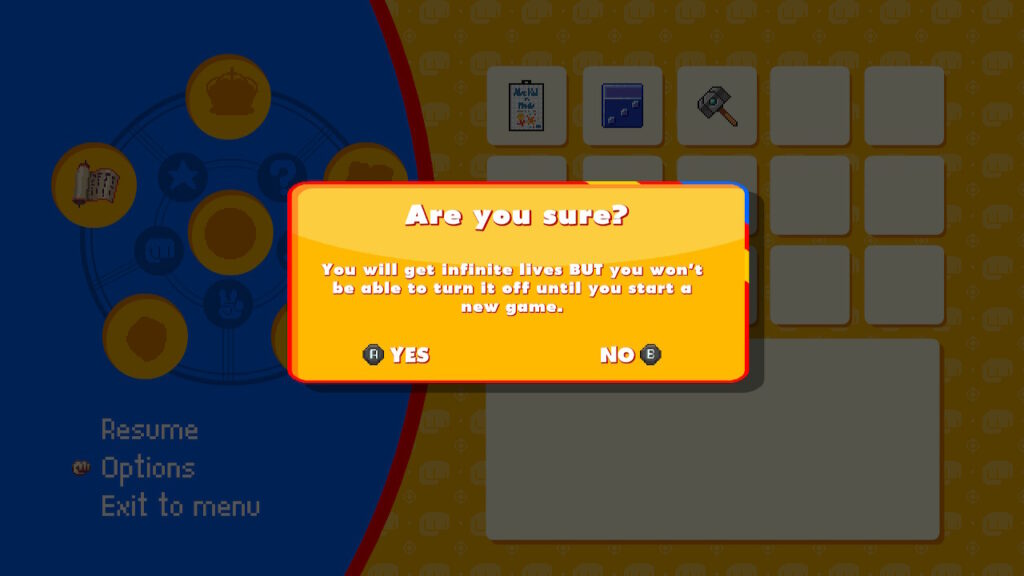
With an incredibly high difficulty, a wide variety of gameplay (even pedal-driven helicopters!), and an absolutely stunning art style, Alex Kidd in Miracle Land DX is a mixed bag. It’s an amazing tribute to the original game from 35 years ago, built by fans that love the series. Thing is, there aren’t many fans of Alex Kidd around these days, and if there are, they definitely haven’t played it since their reflexes slowed down. The gameplay is tough, the levels are short, the pacing is odd, and the game gives you scant chance to succeed. The insta-death can be beyond frustrating and even with infinite continues and the option for infinite lives, some players will certainly rage-quit.
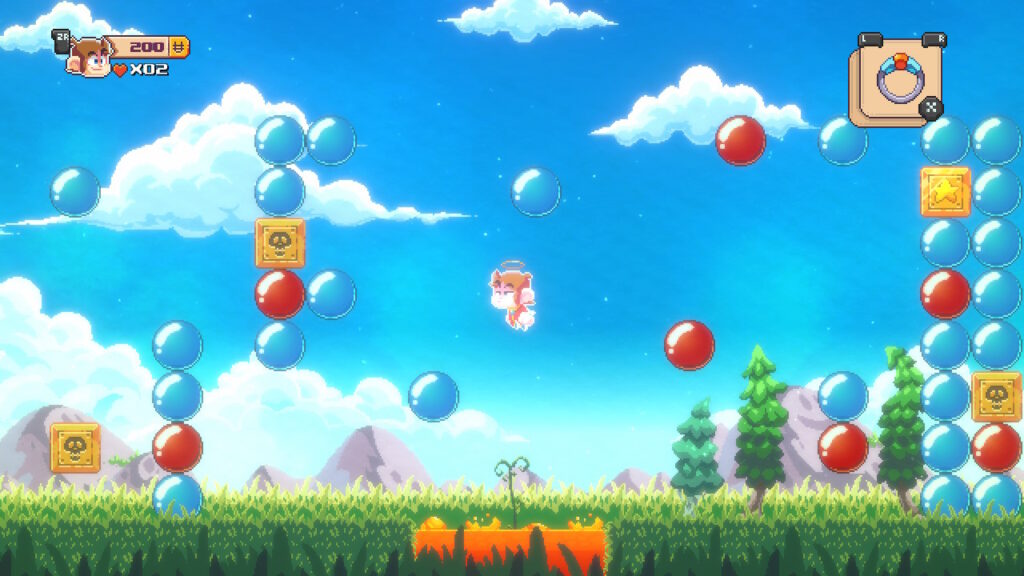
Excellent graphics and music will only take you so far though and then a game has to stand on its own. As a tribute to SMS gaming, this is one spectacular title. But it’s also not suited for most modern gamers and a fair number of players will likely dislike the rather dated mechanics and design of Alex Kidd in Miracle World DX. Sometimes, you can love something too much, and this might be the case for the devs of Alex Kidd. Ultimately, there’s limited appeal here outside of nostalgic players who fondly remember the suffering of their youth. At a $20 price, unless you’re already an Alex Kidd fan, this might be a title you wait for a sale on. It’s a polished gem of a title, created with every slight consideration taken, but it’s definitely not for everyone. If you want a challenge though, Alex Kidd in Miracle World DX is here to give you one.
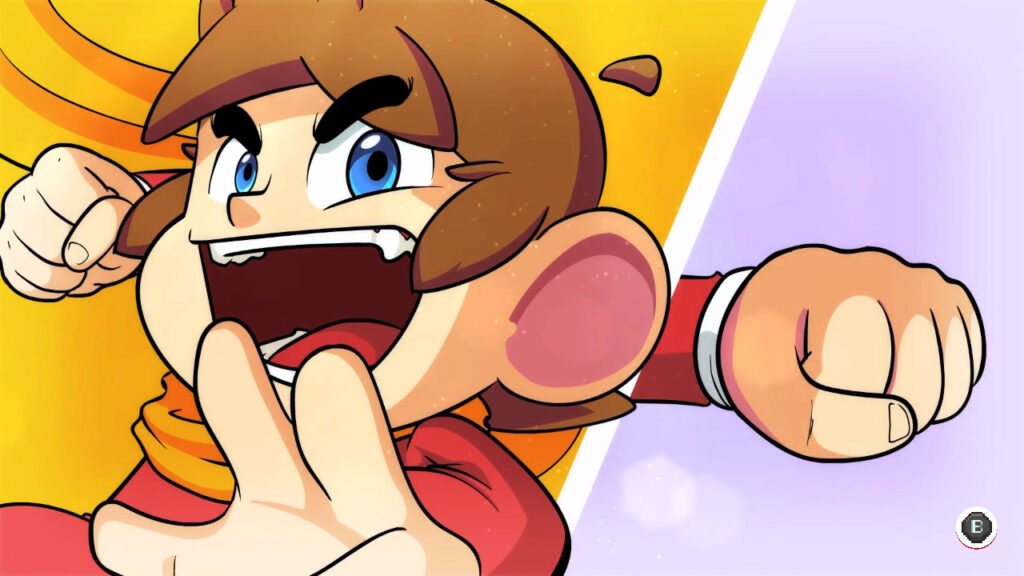
This review was based on a digital copy of Alex Kidd in Miracle World DX provided by the publisher. It was played on a Nintendo Switch System in both docked and undocked modes and was excellent in both. Both a Split Pad Pro and Switch Pro Controller were used for gameplay. Alex Kidd in Miracle World DX is also available for PS4/PS5, Xbox One/XSX, and PC through Steam. All screenshots are of actual gameplay.

